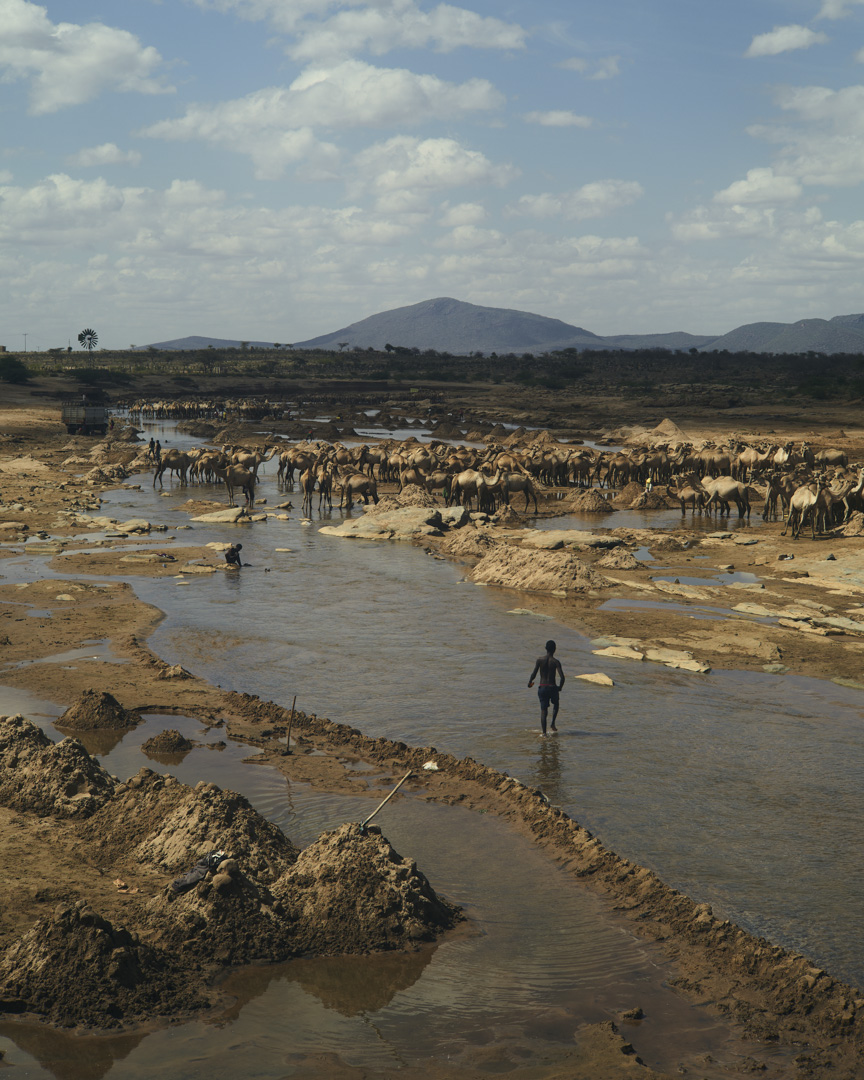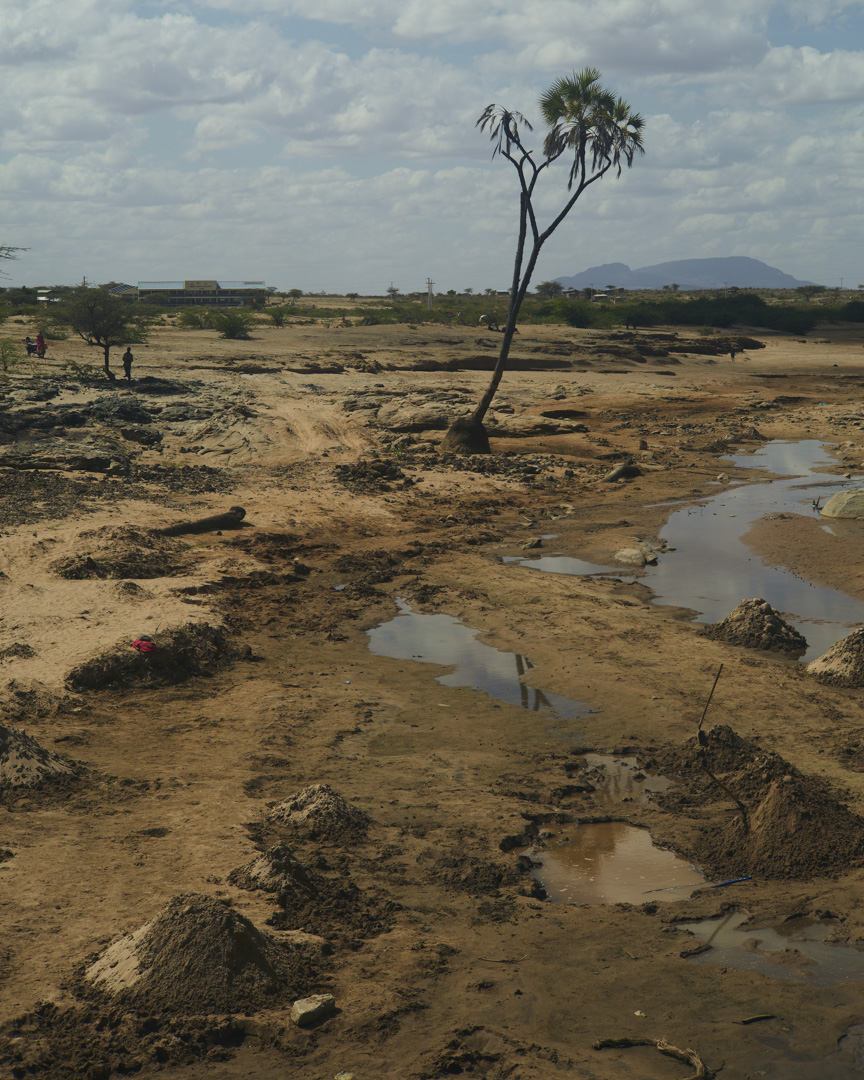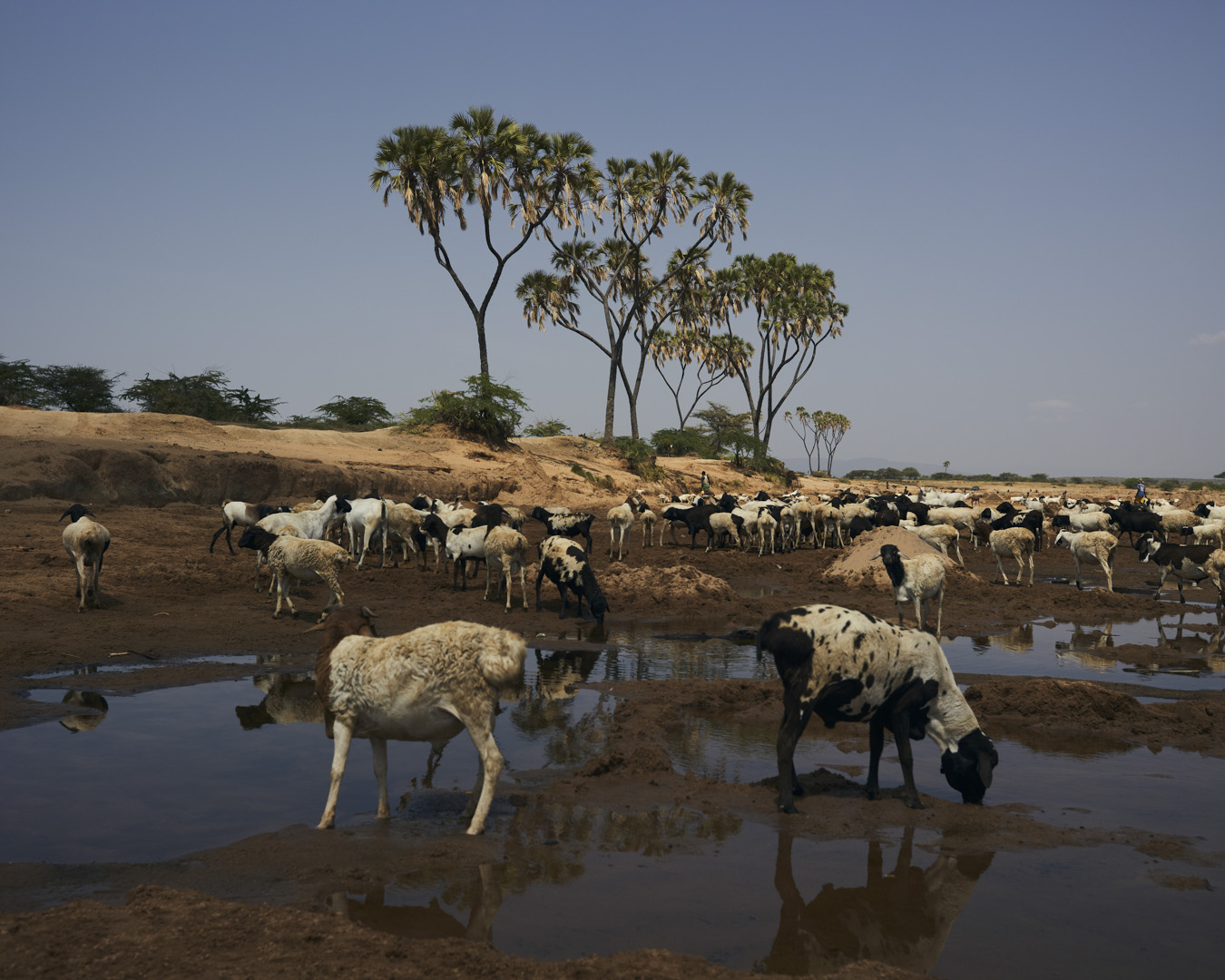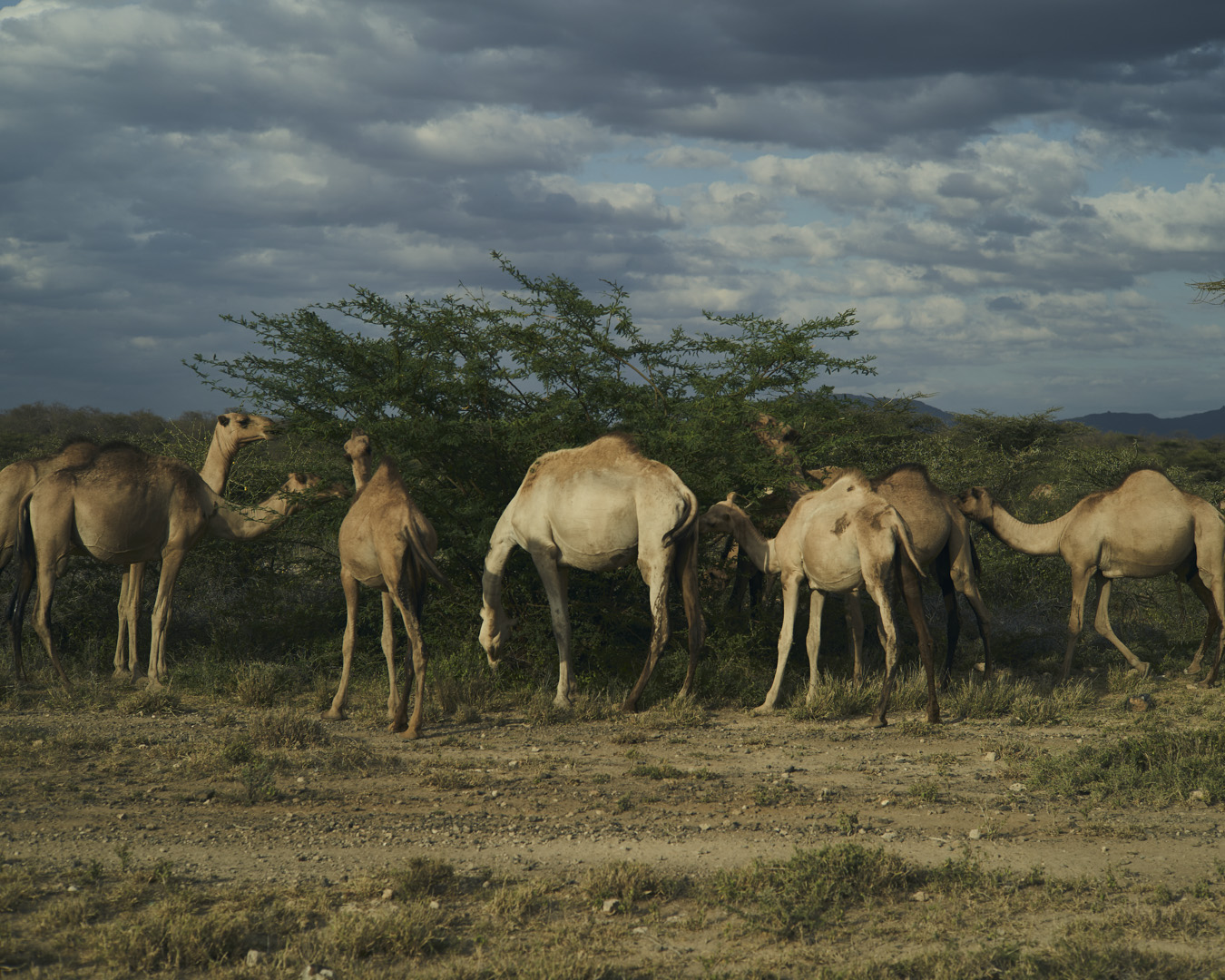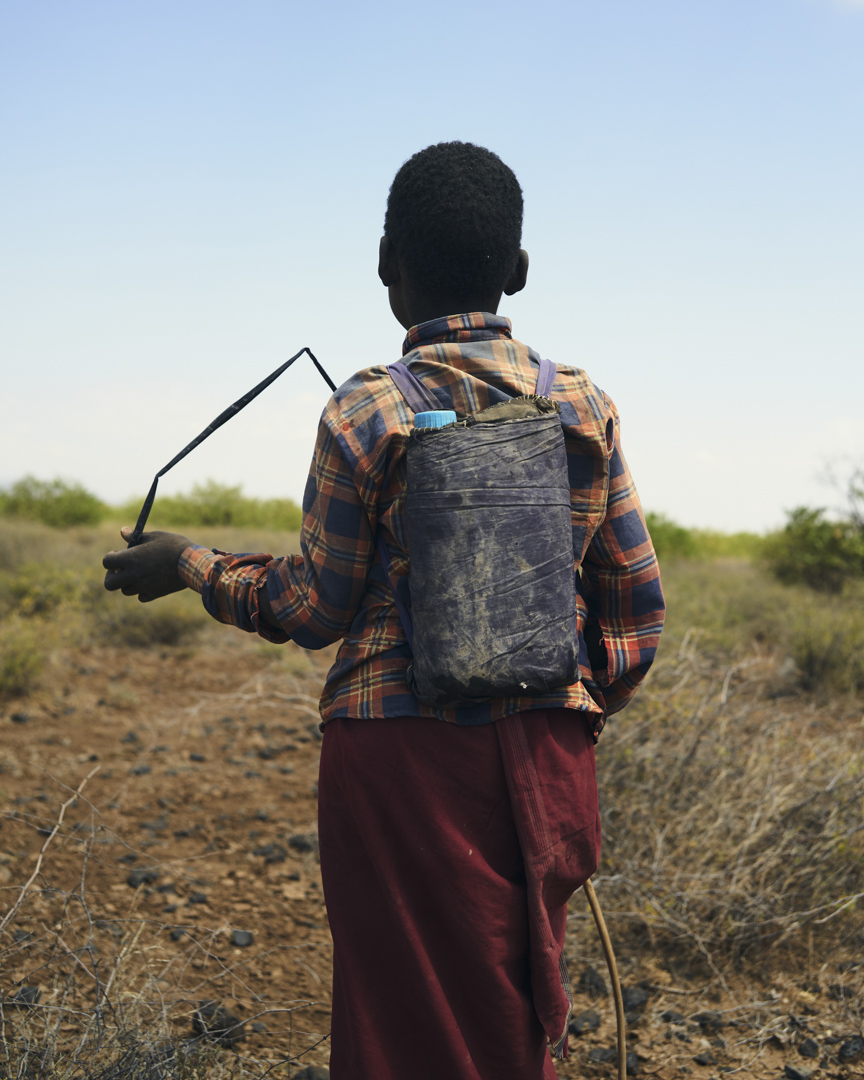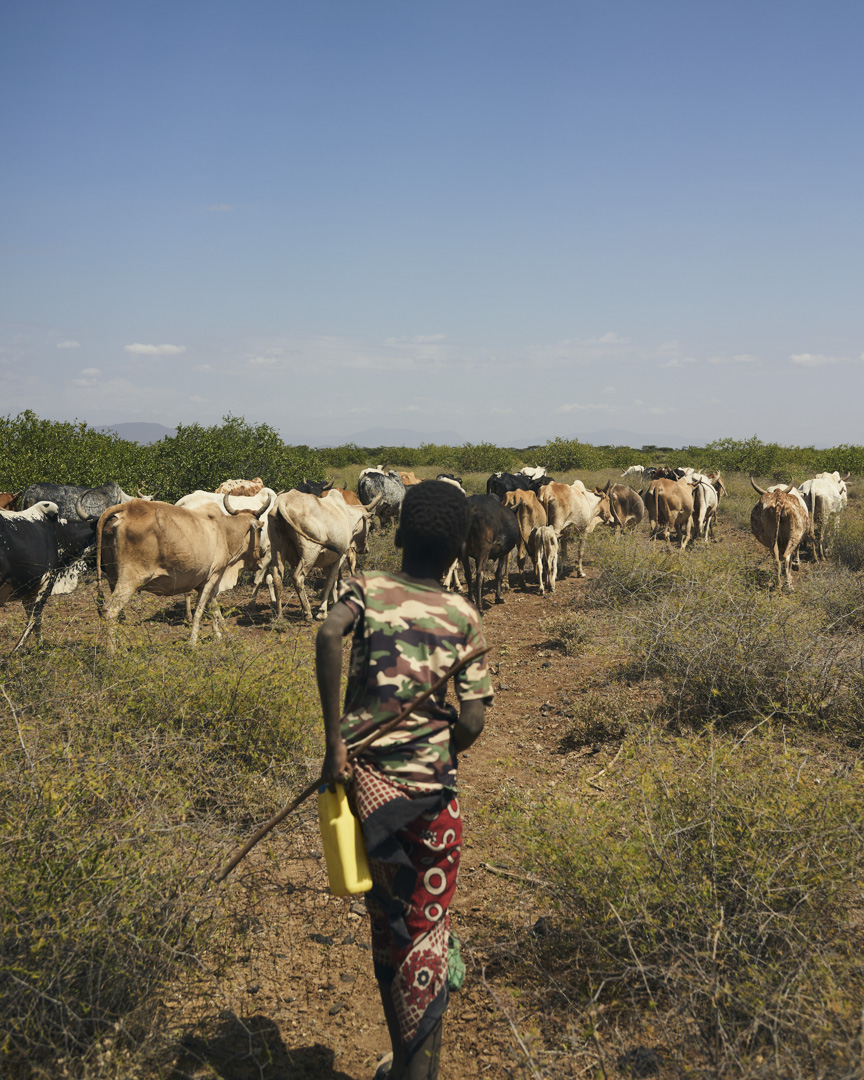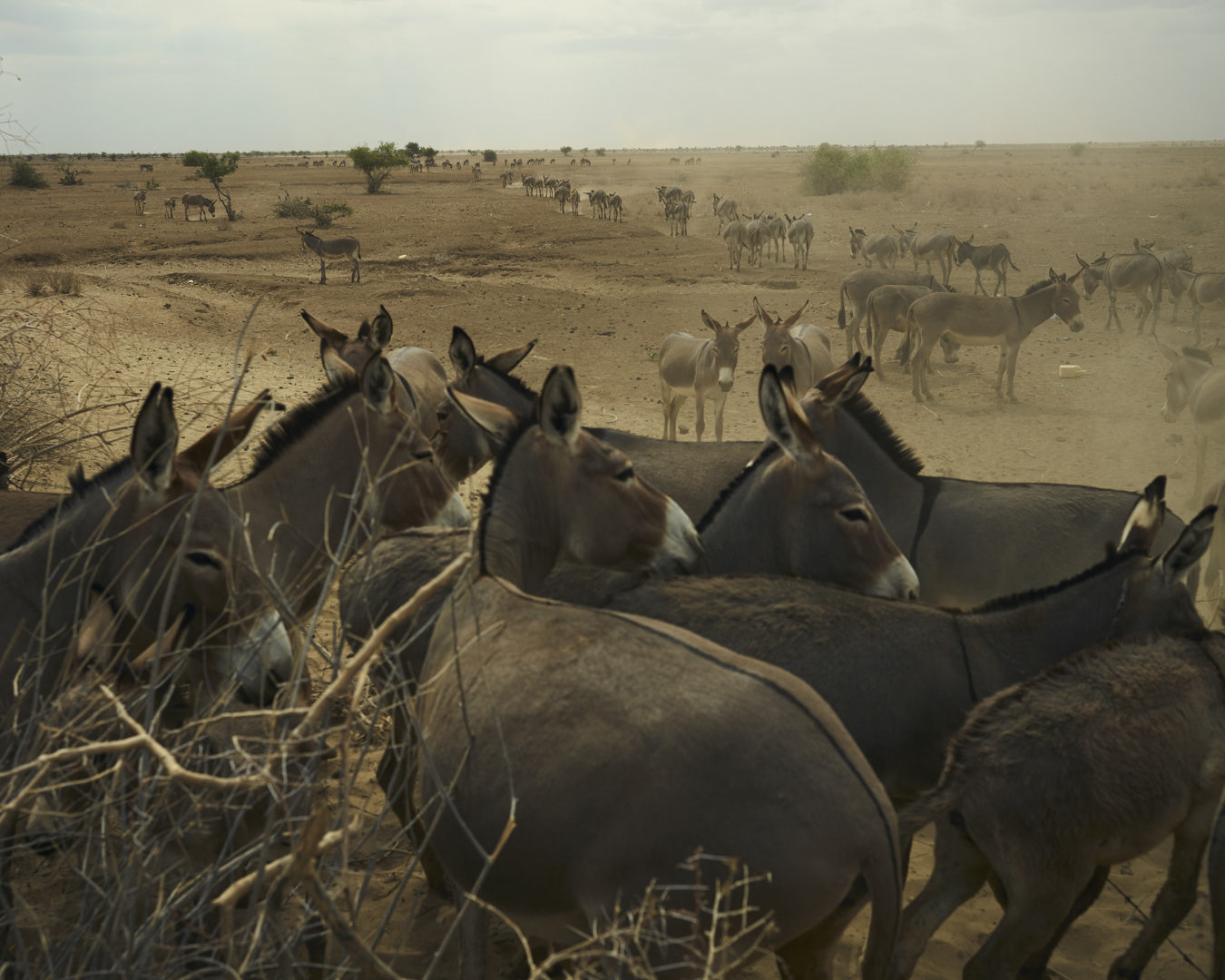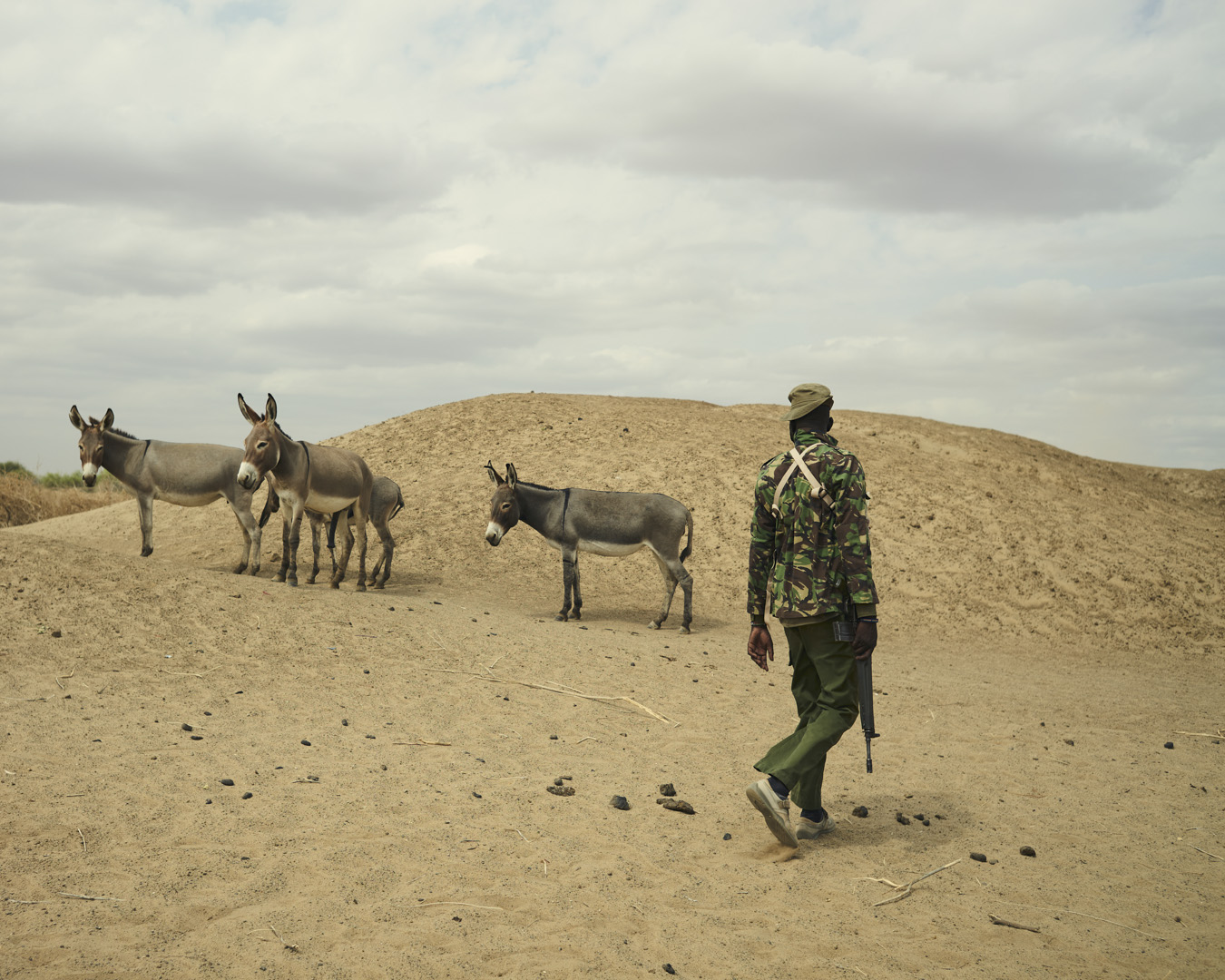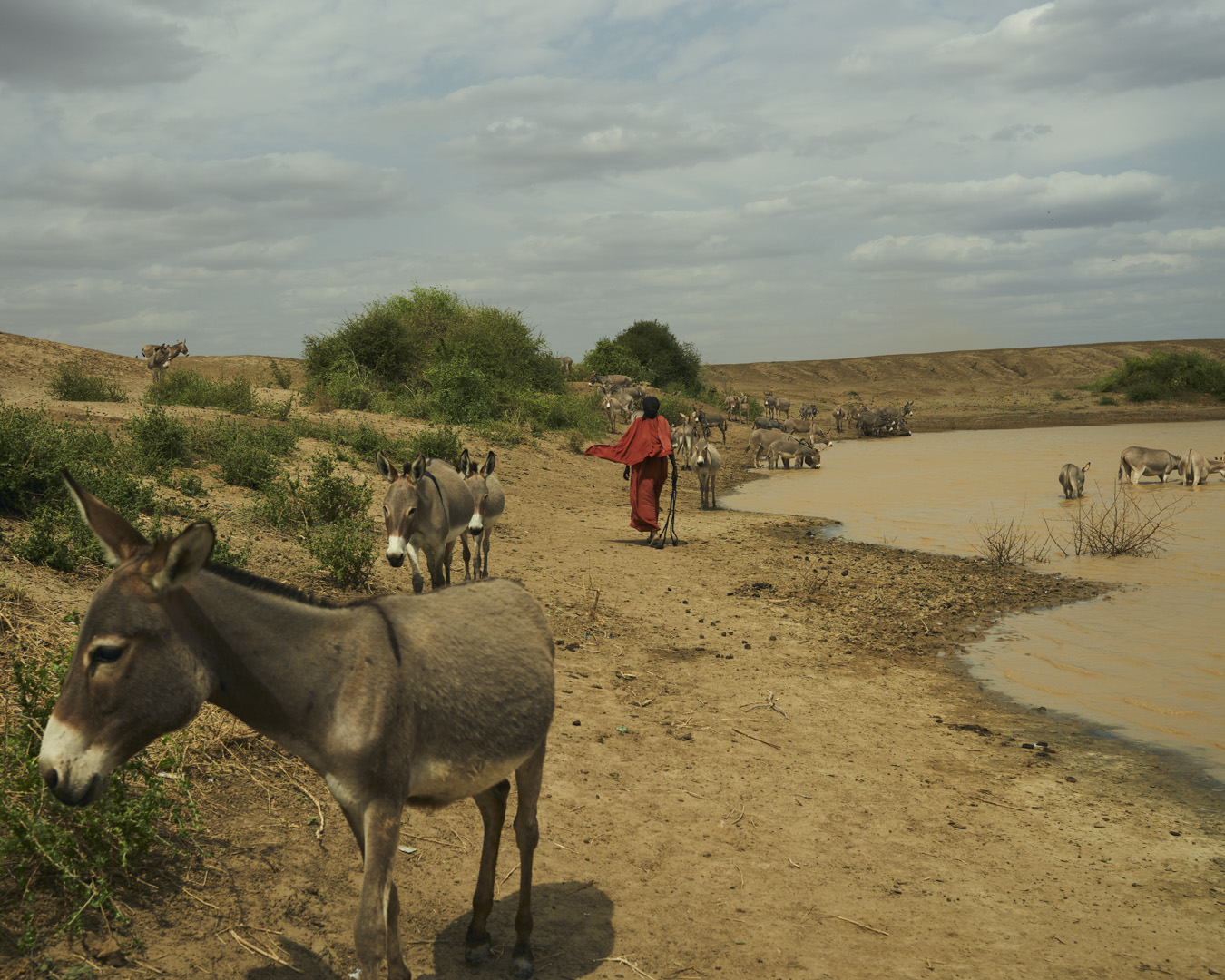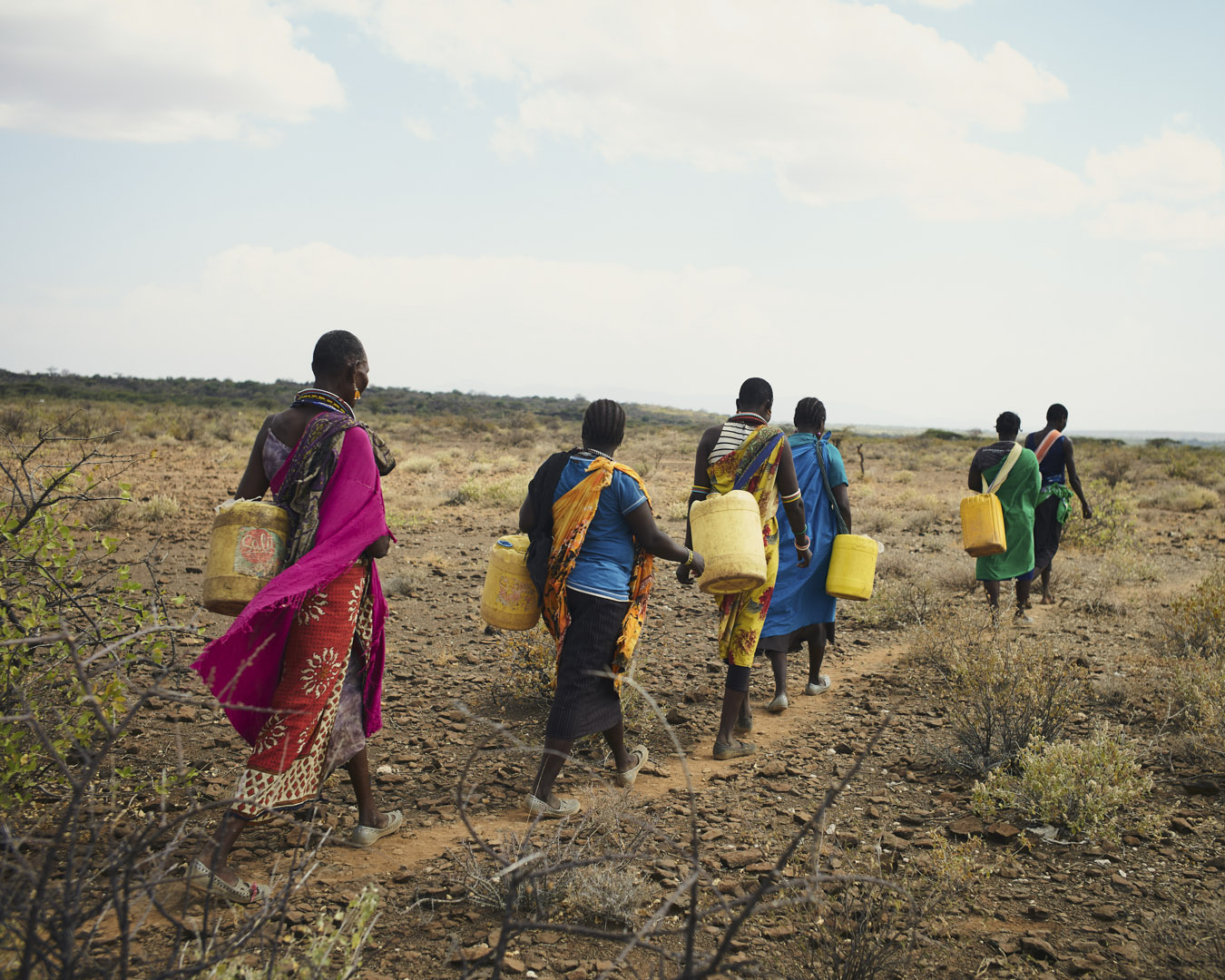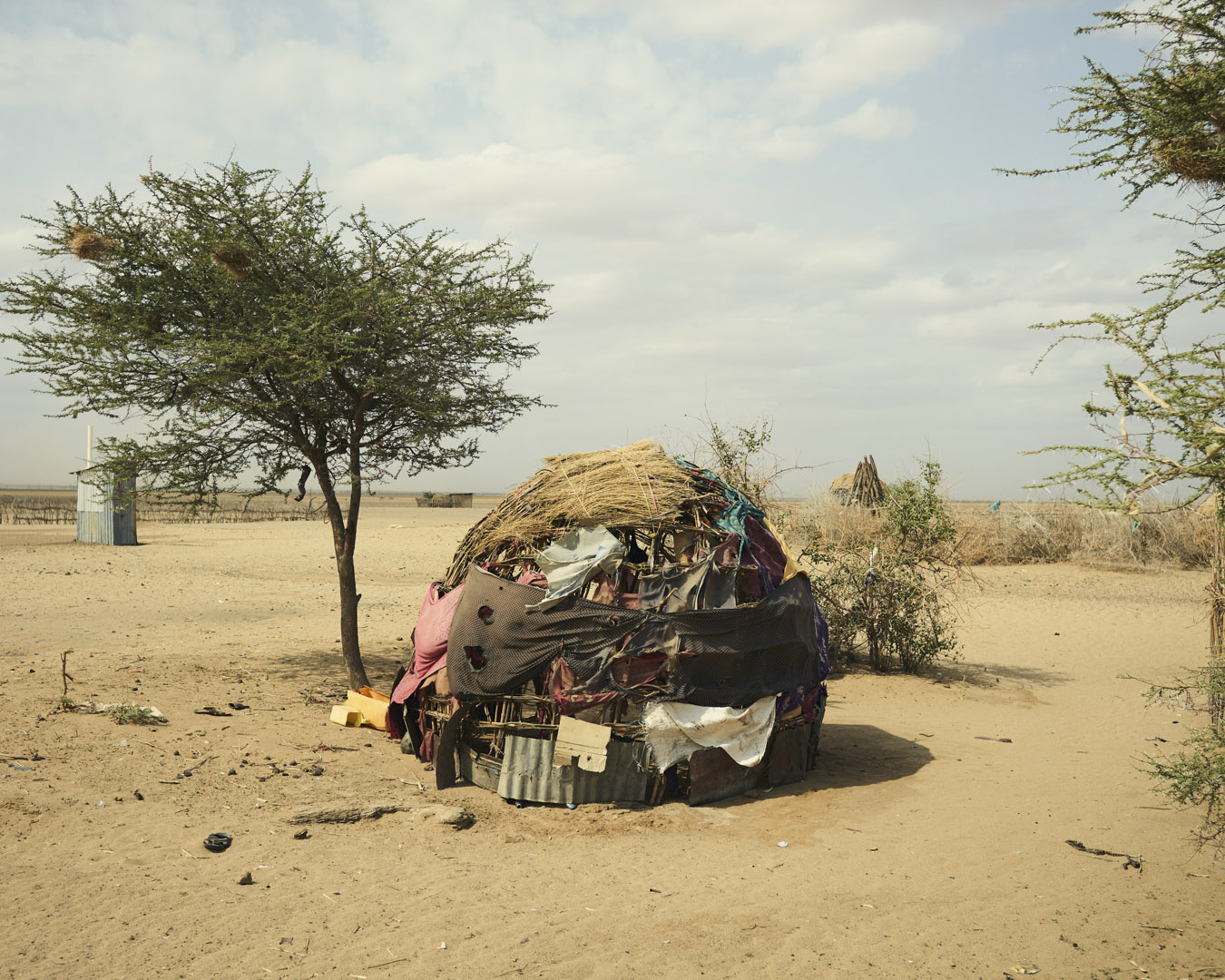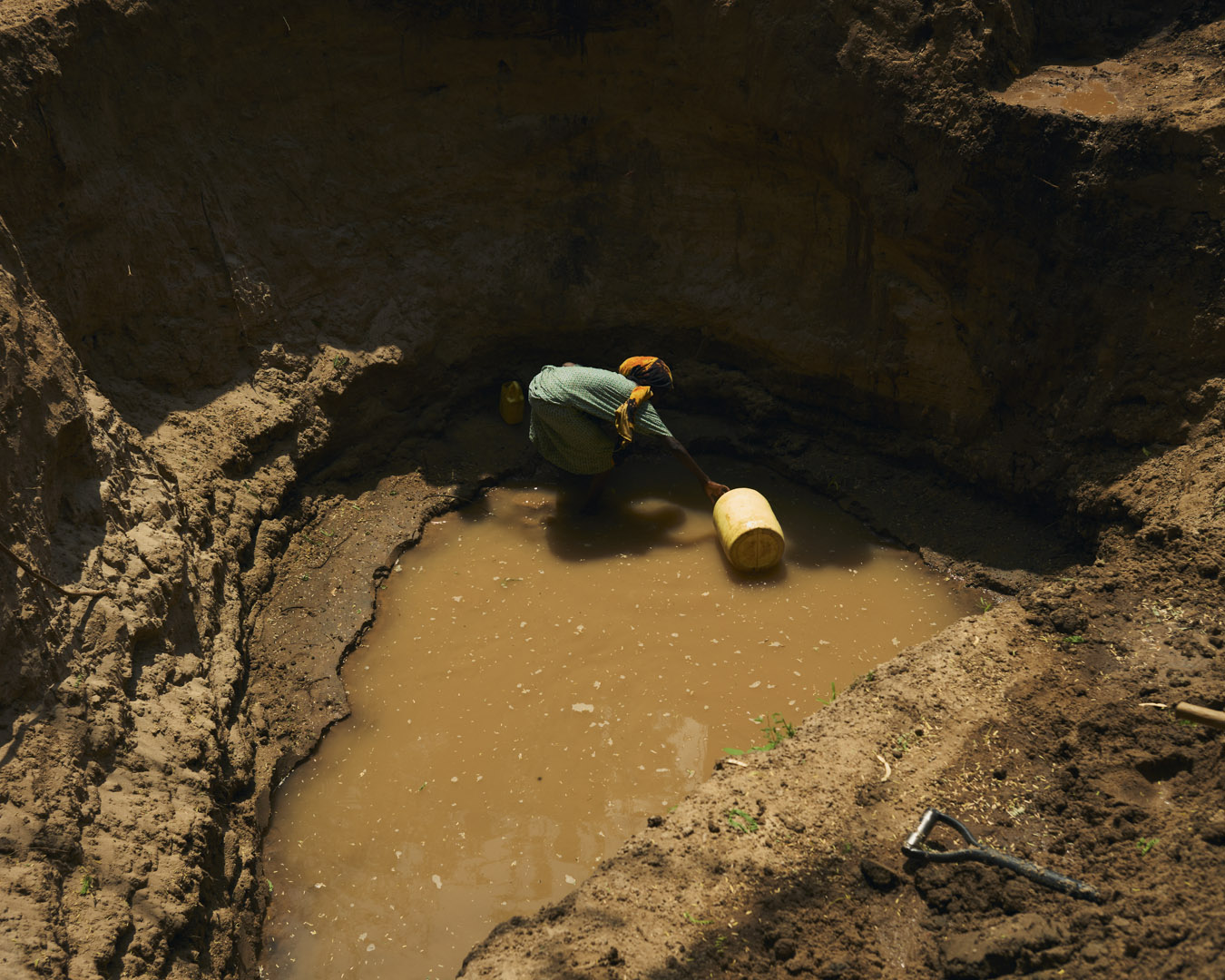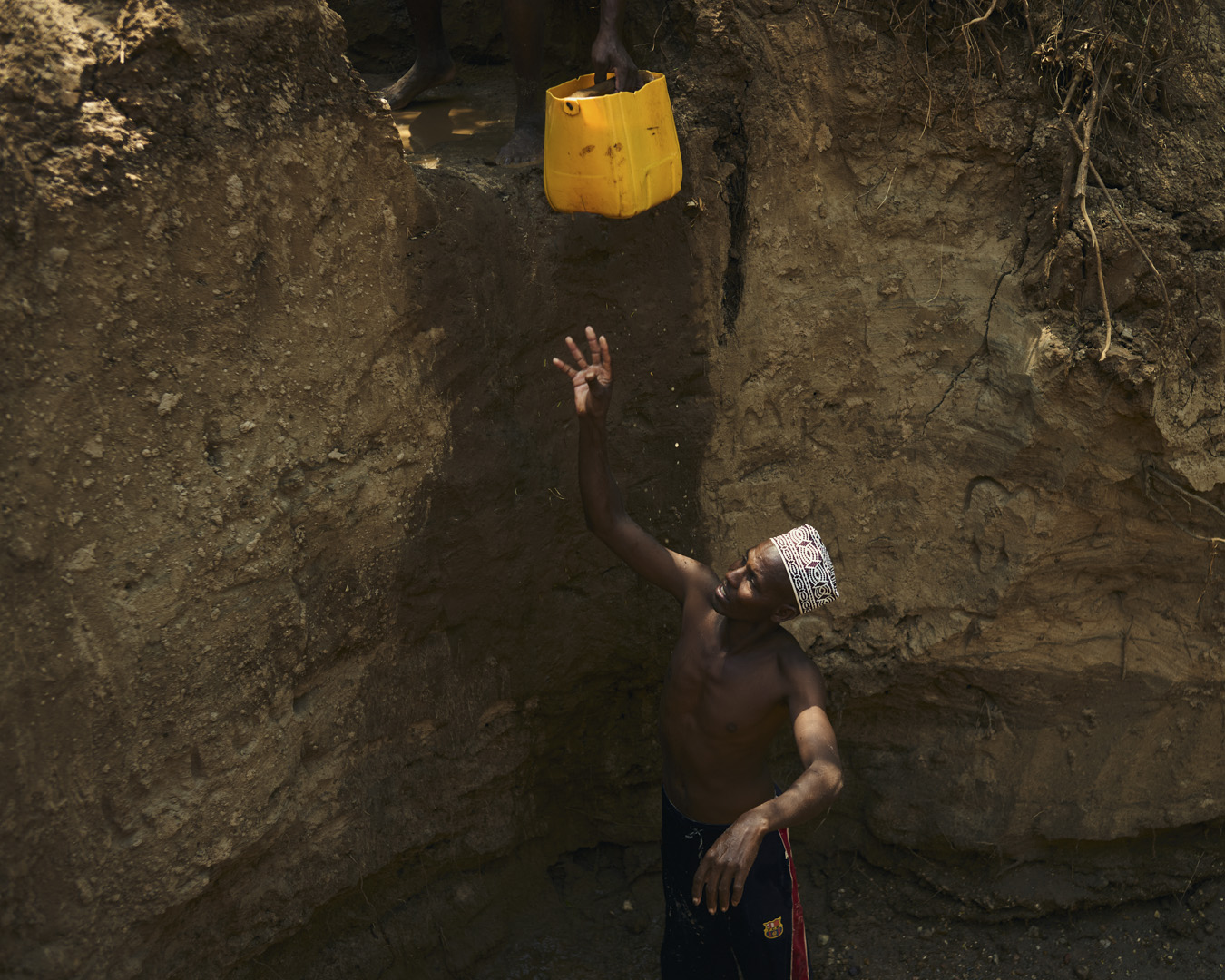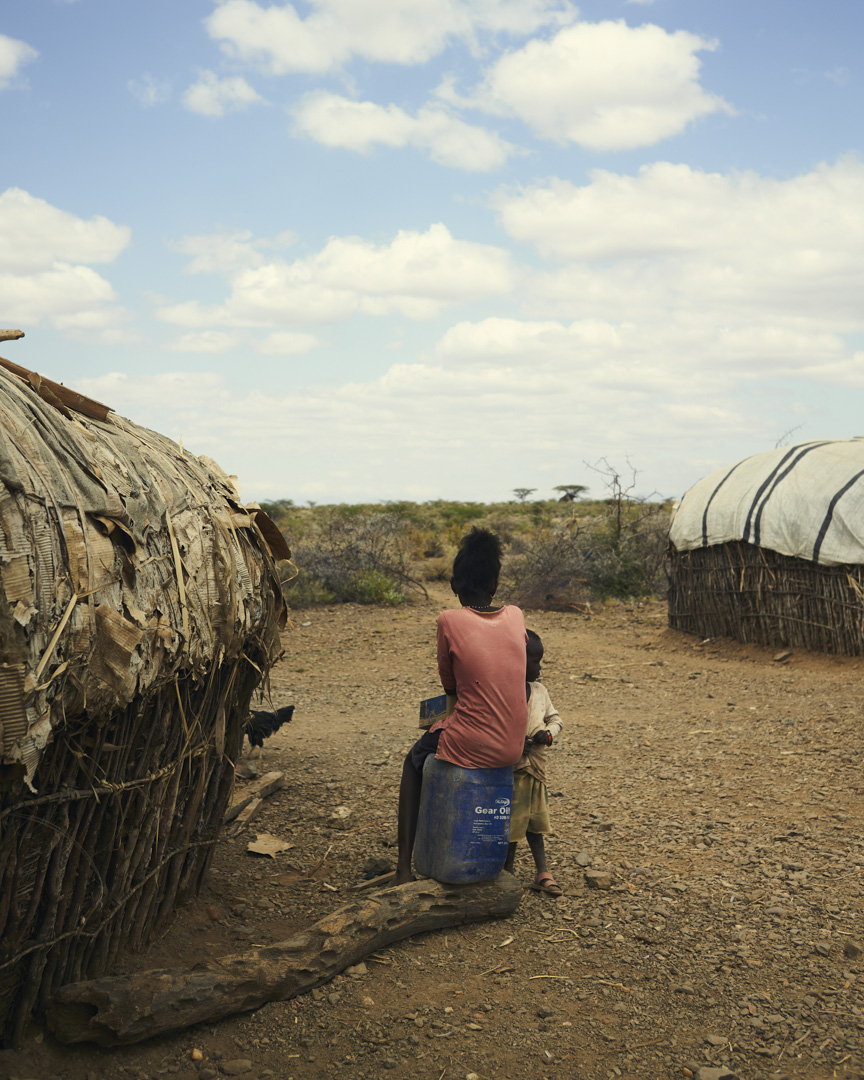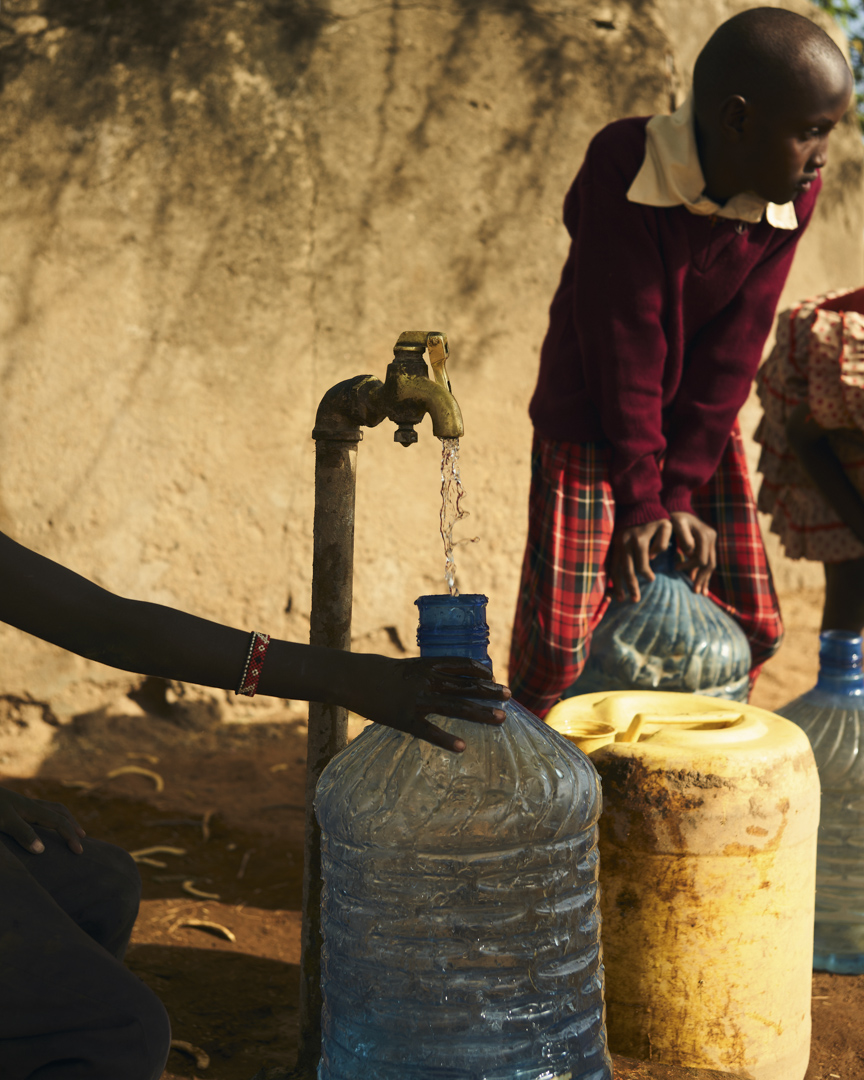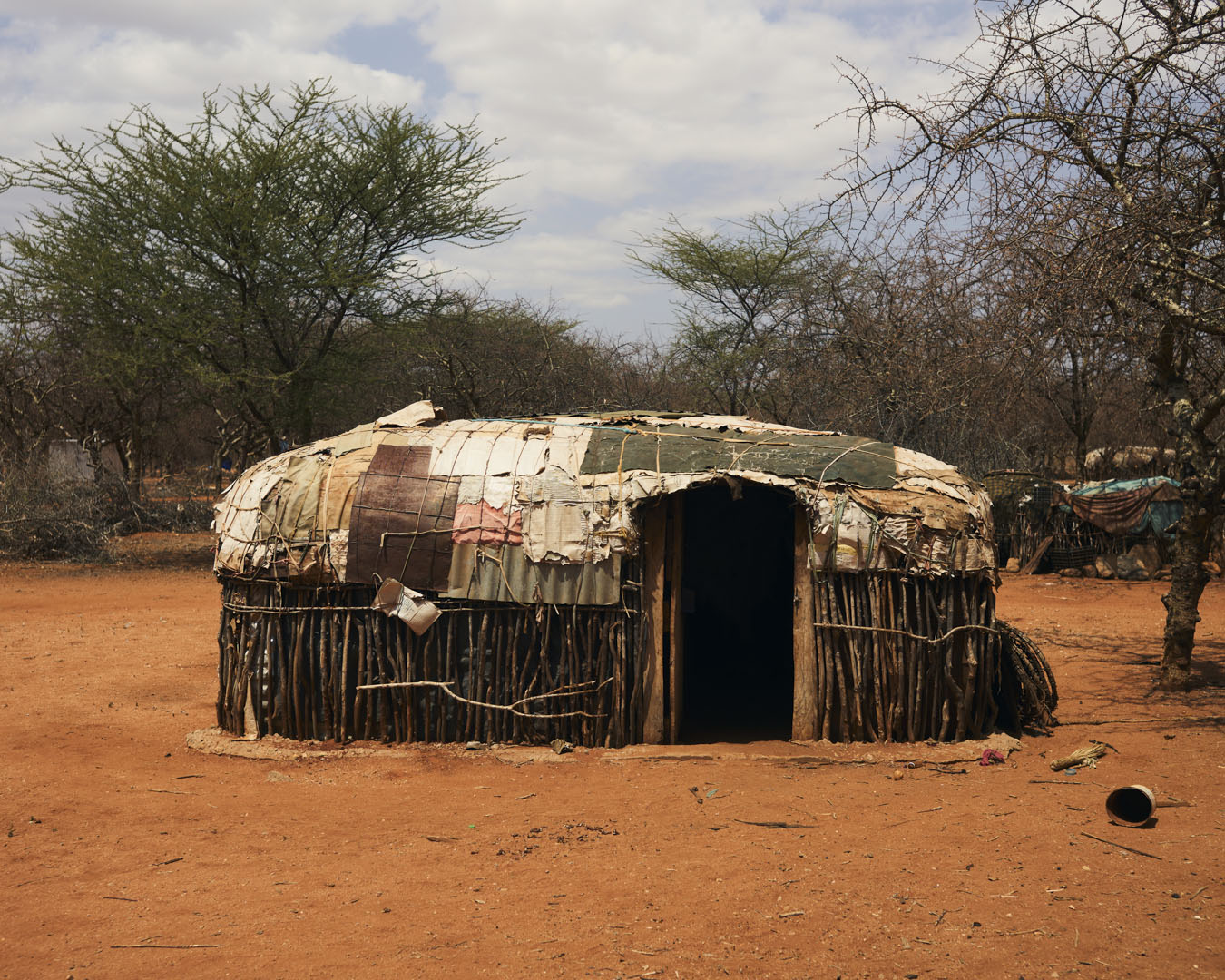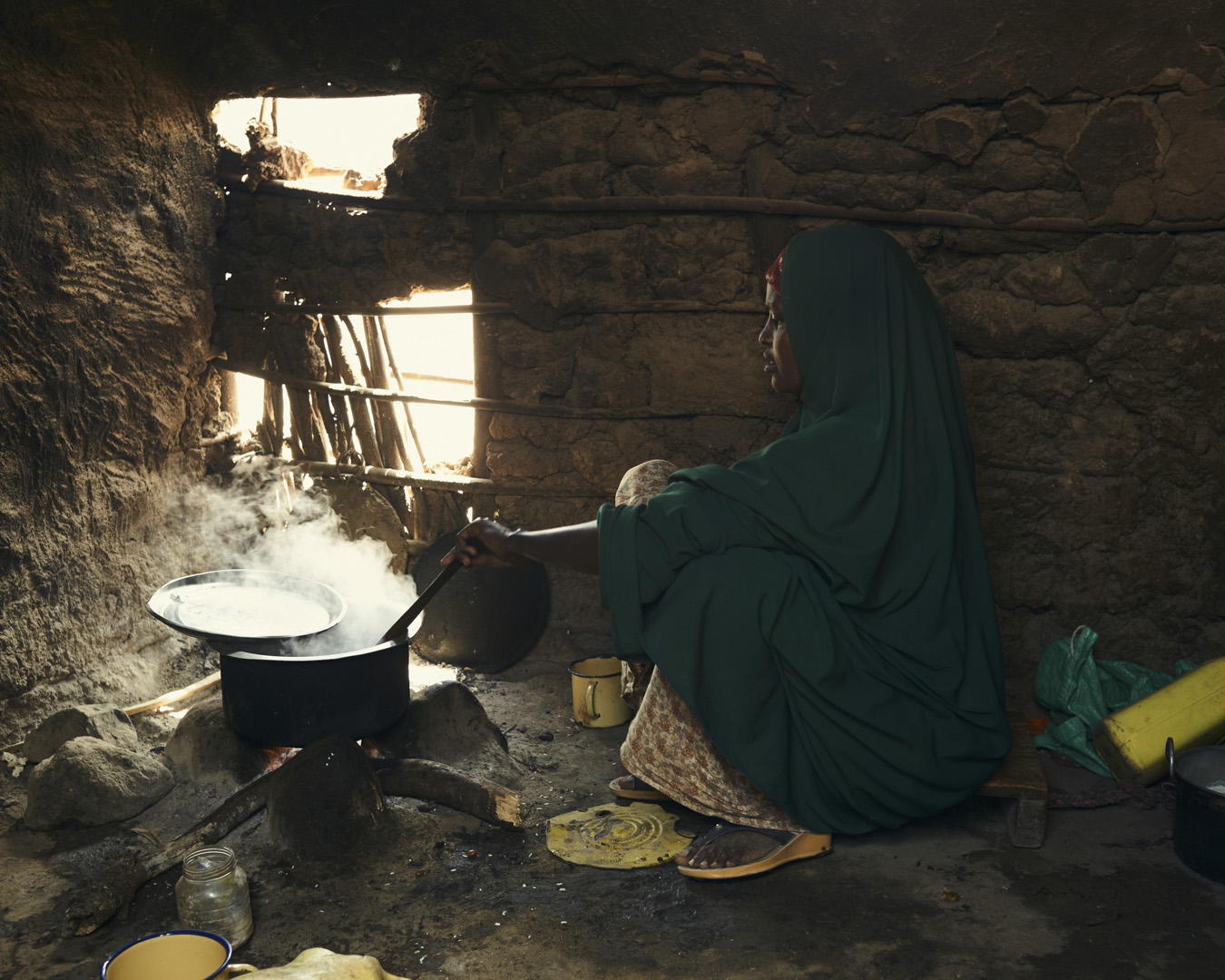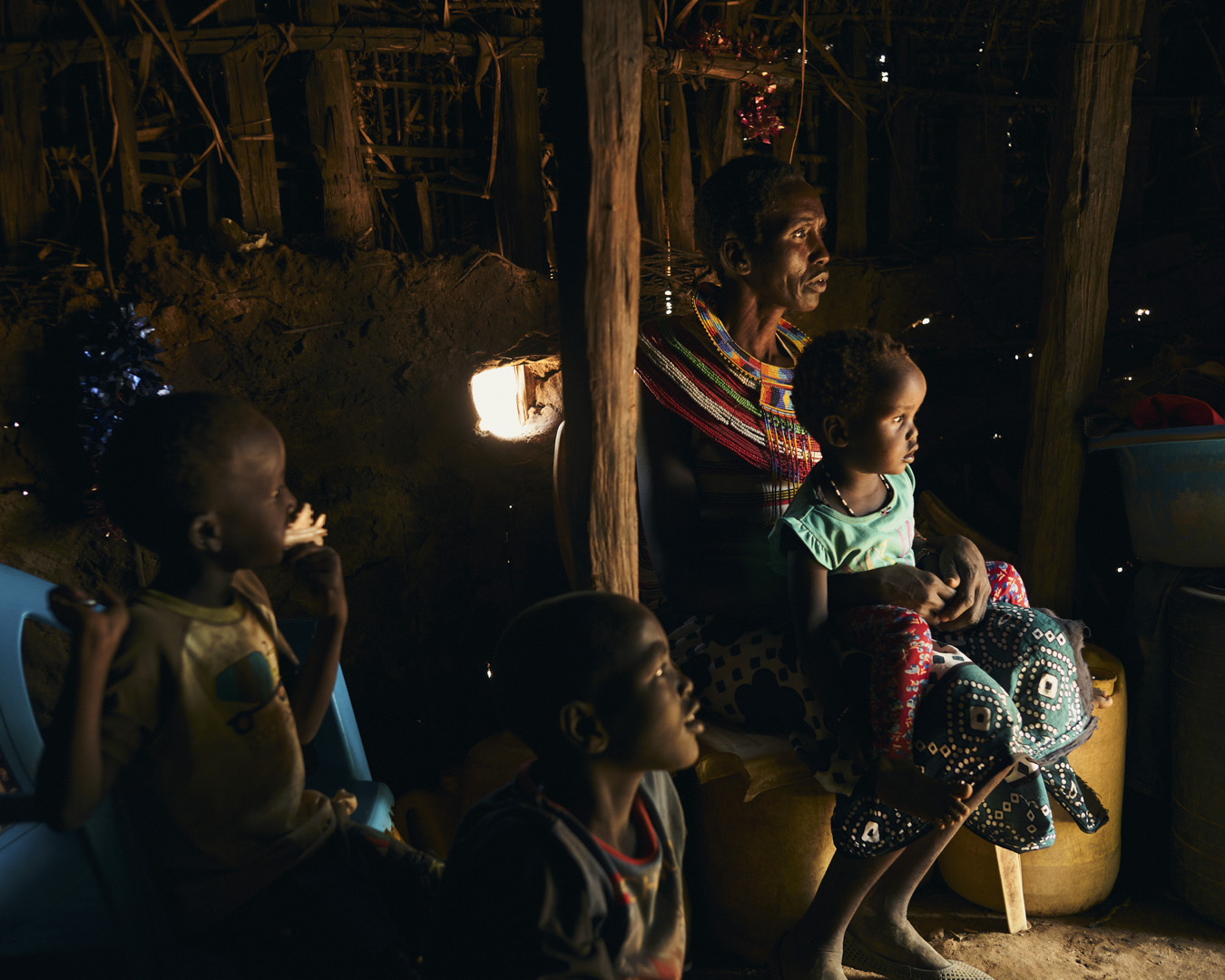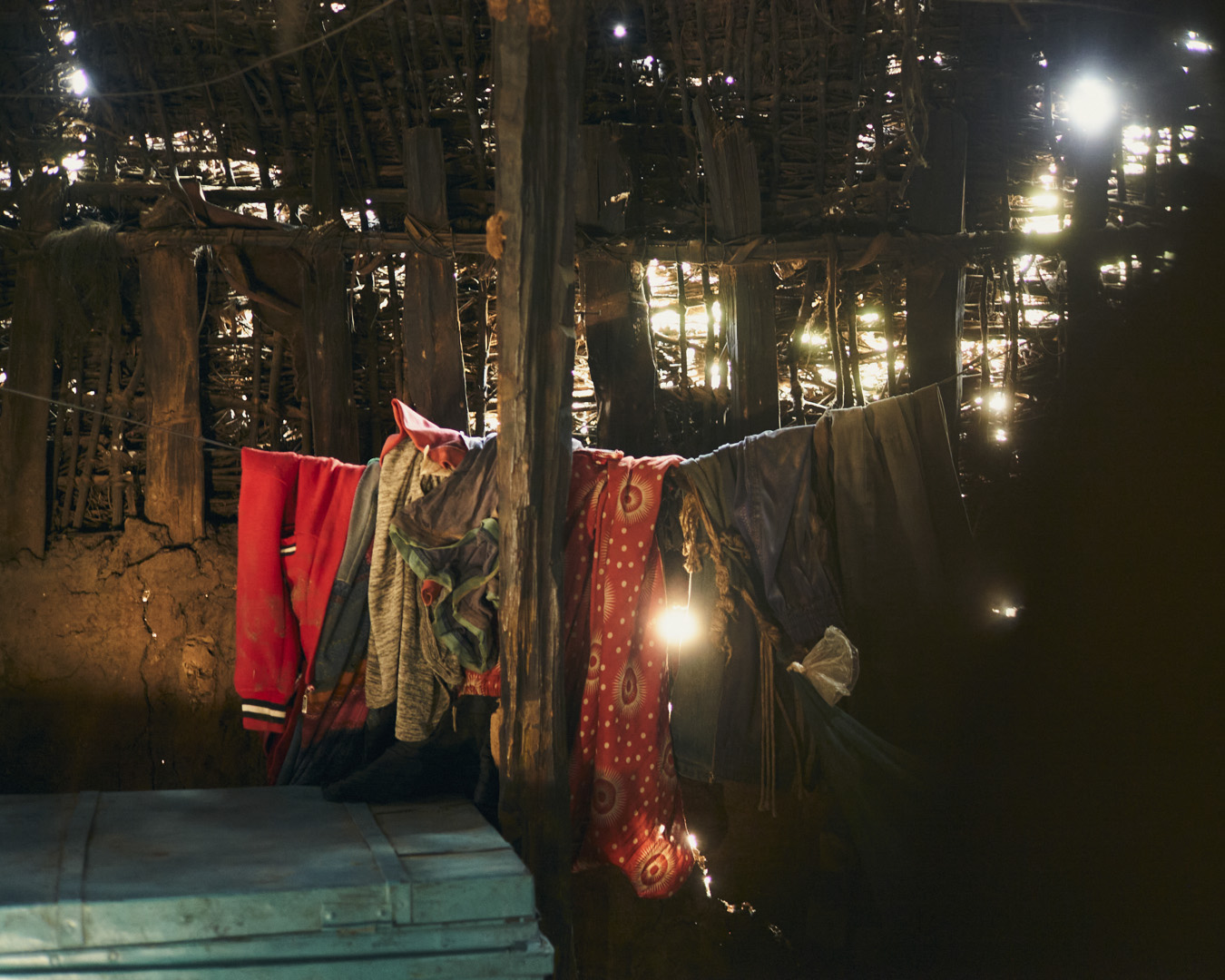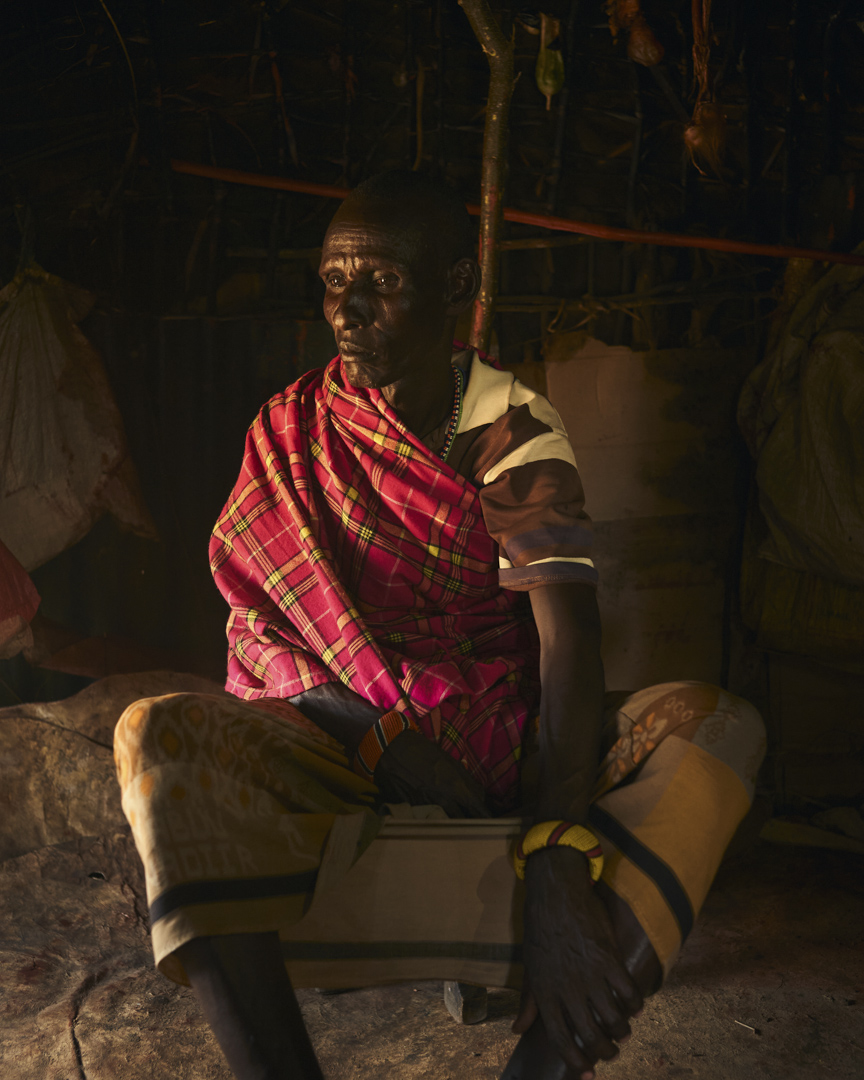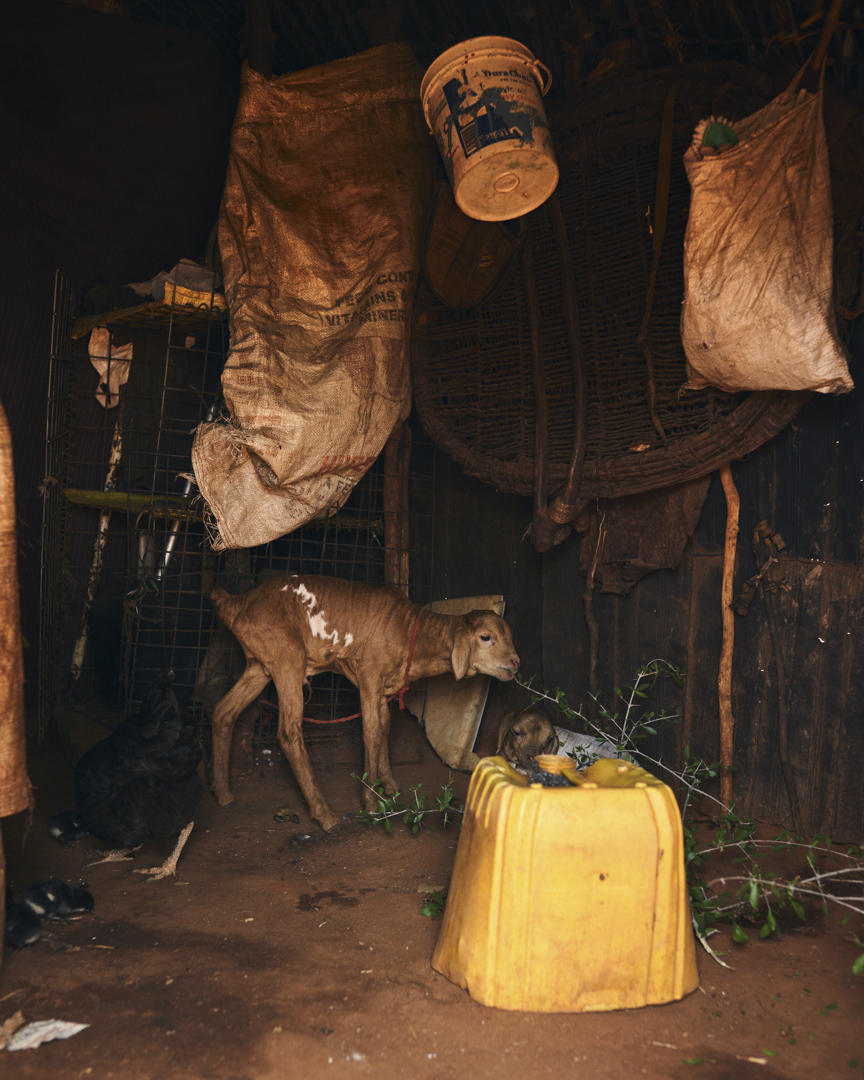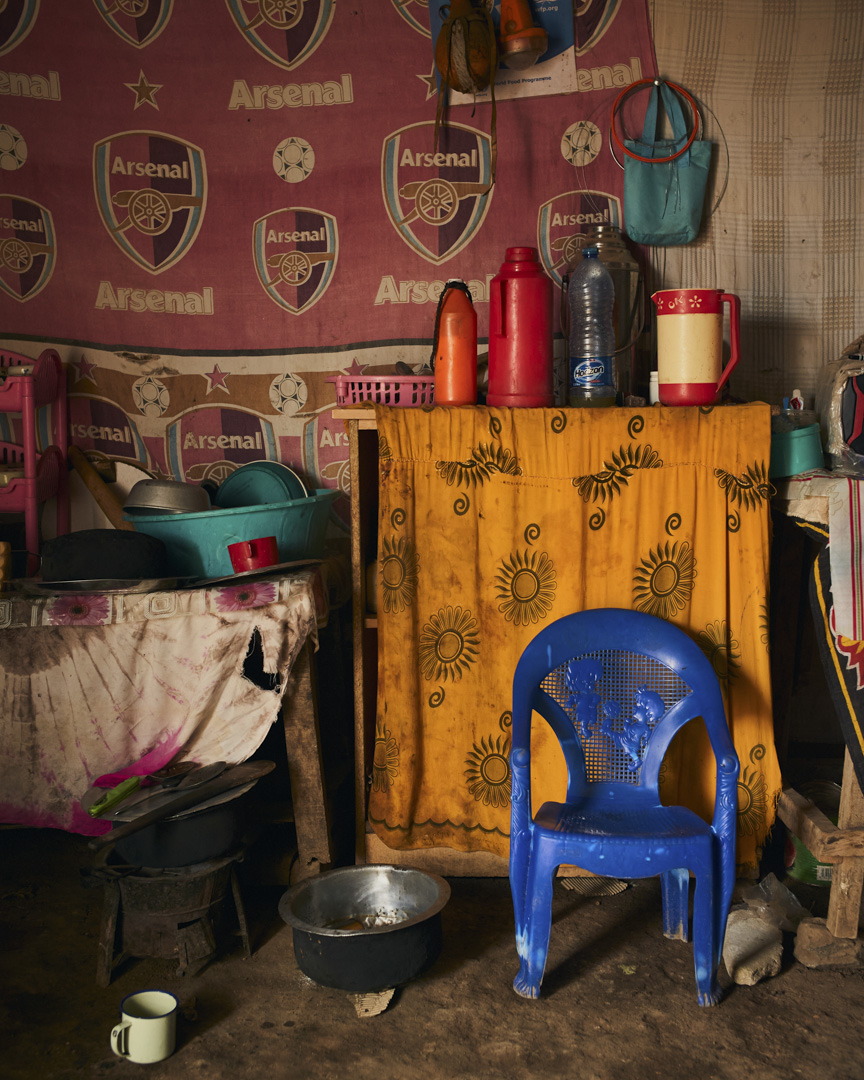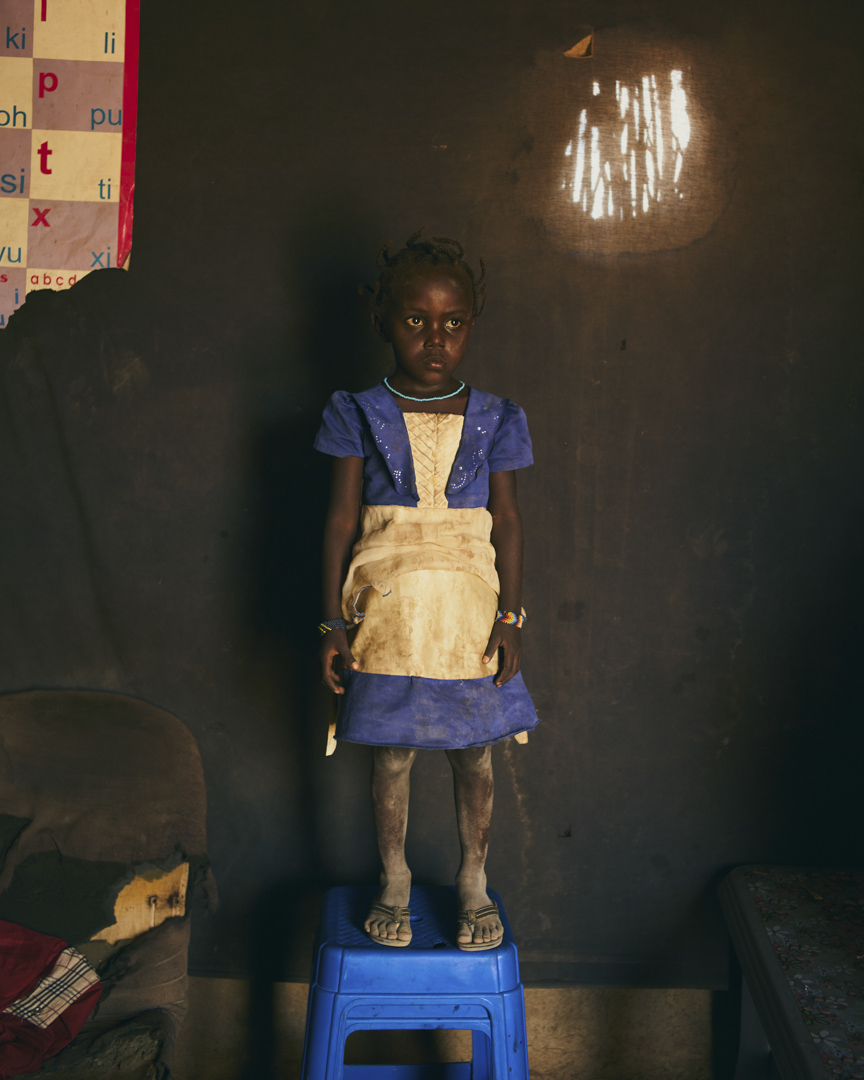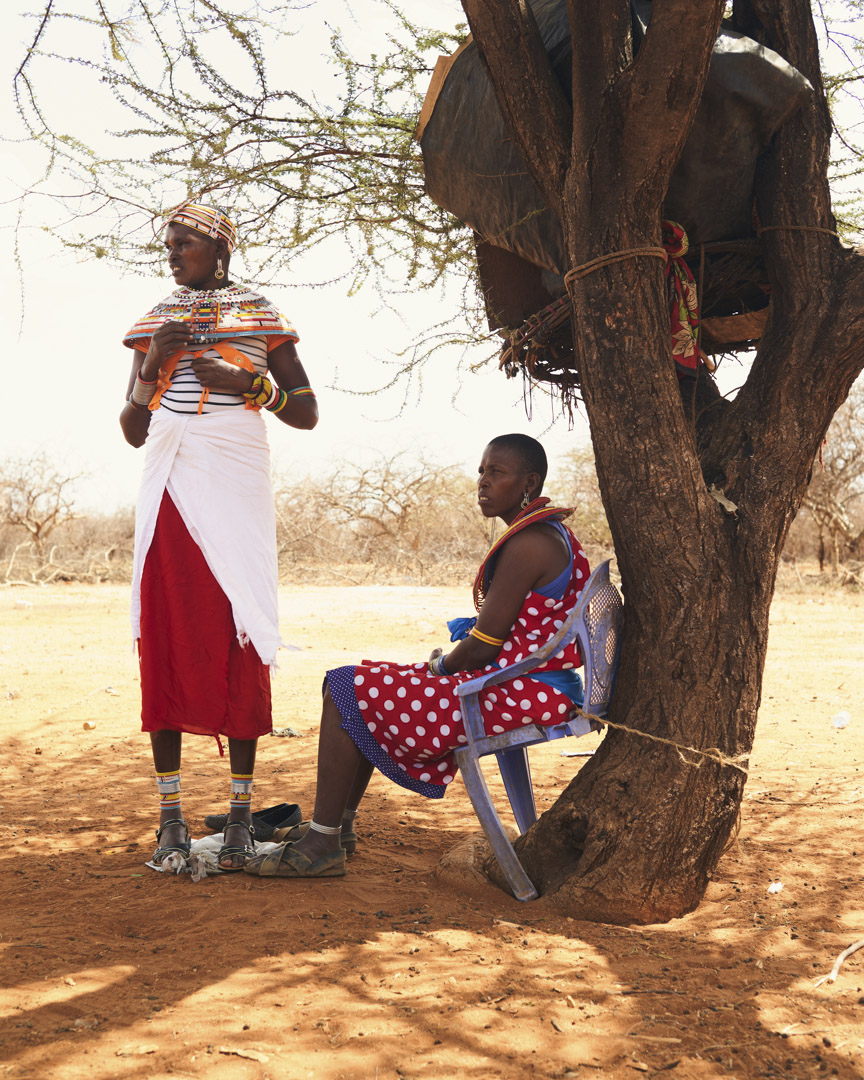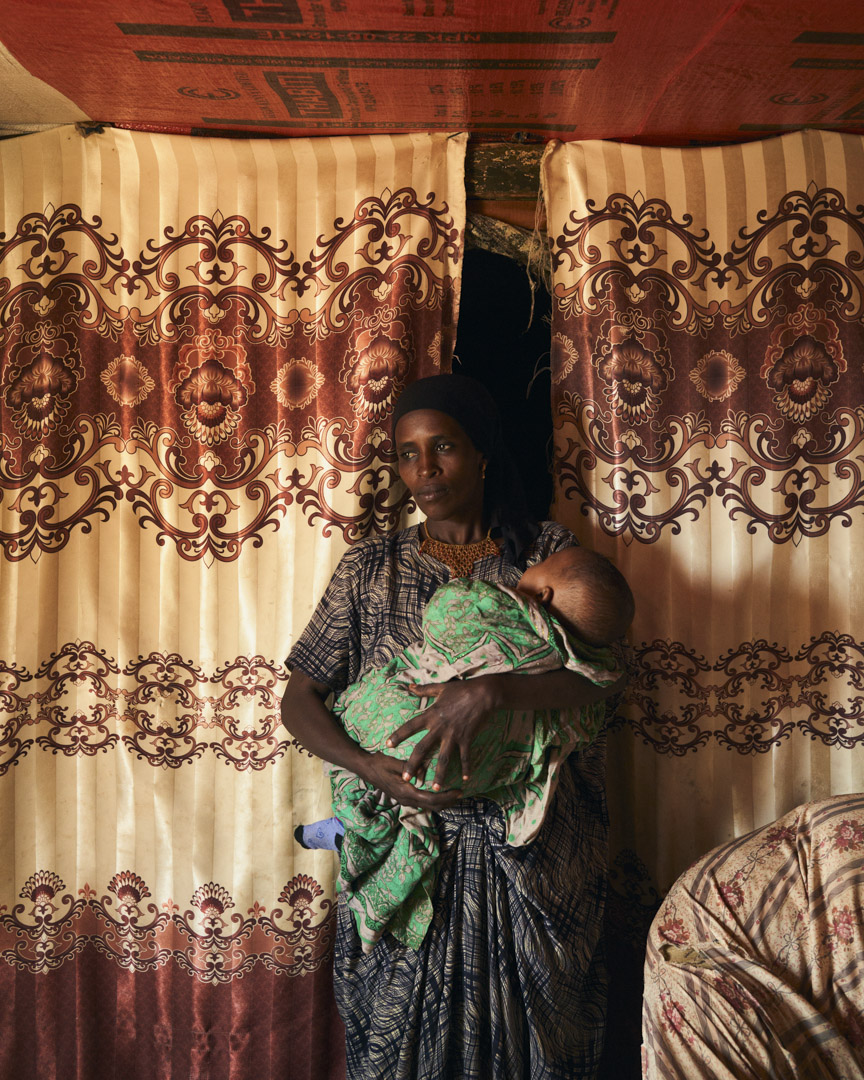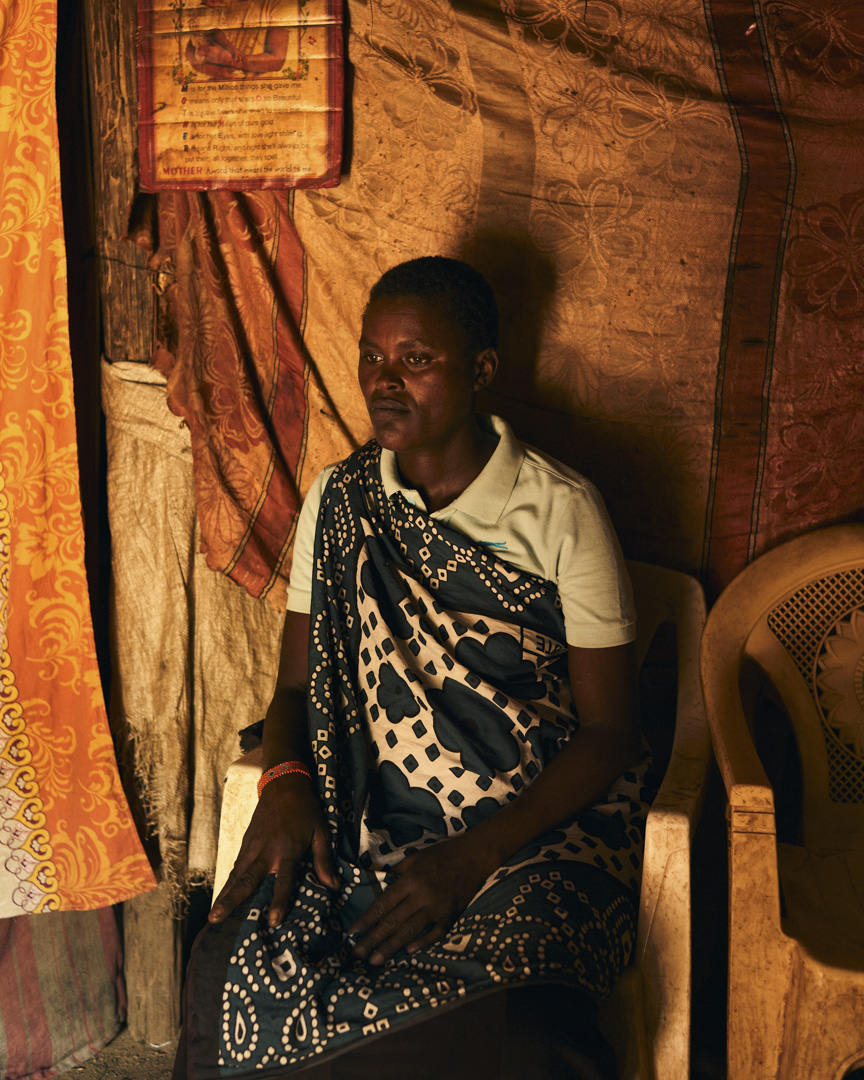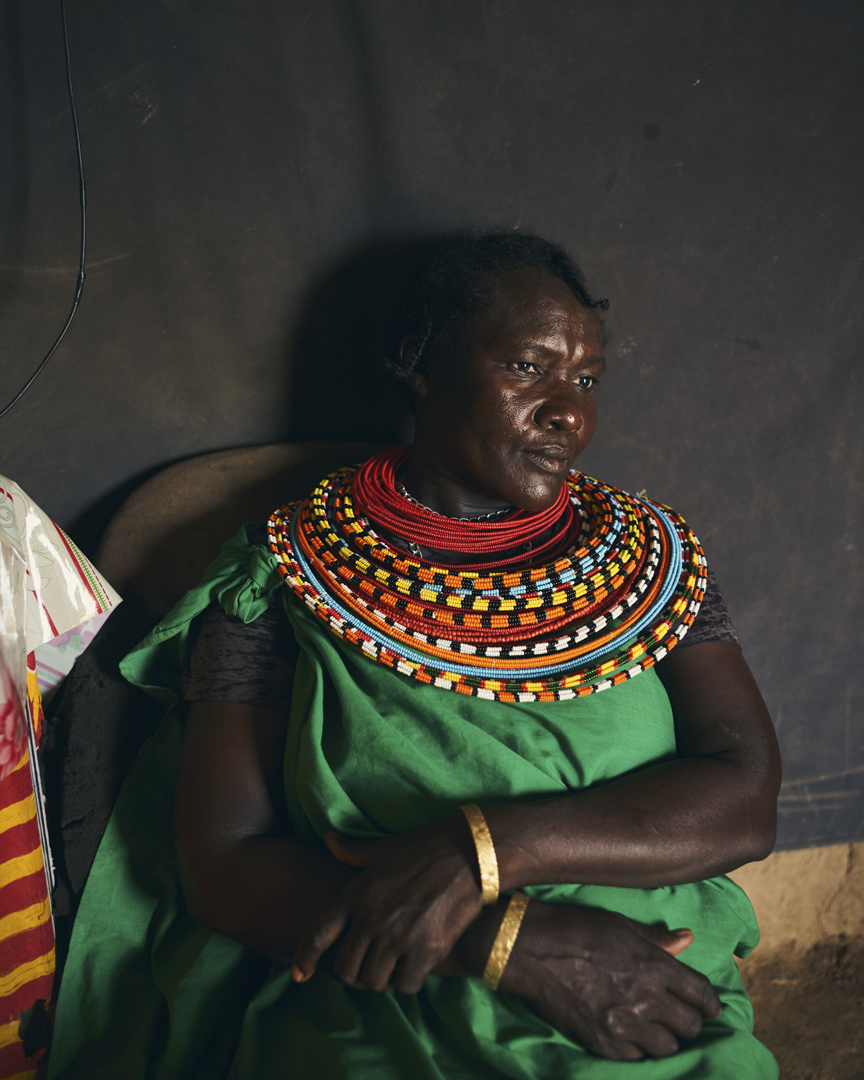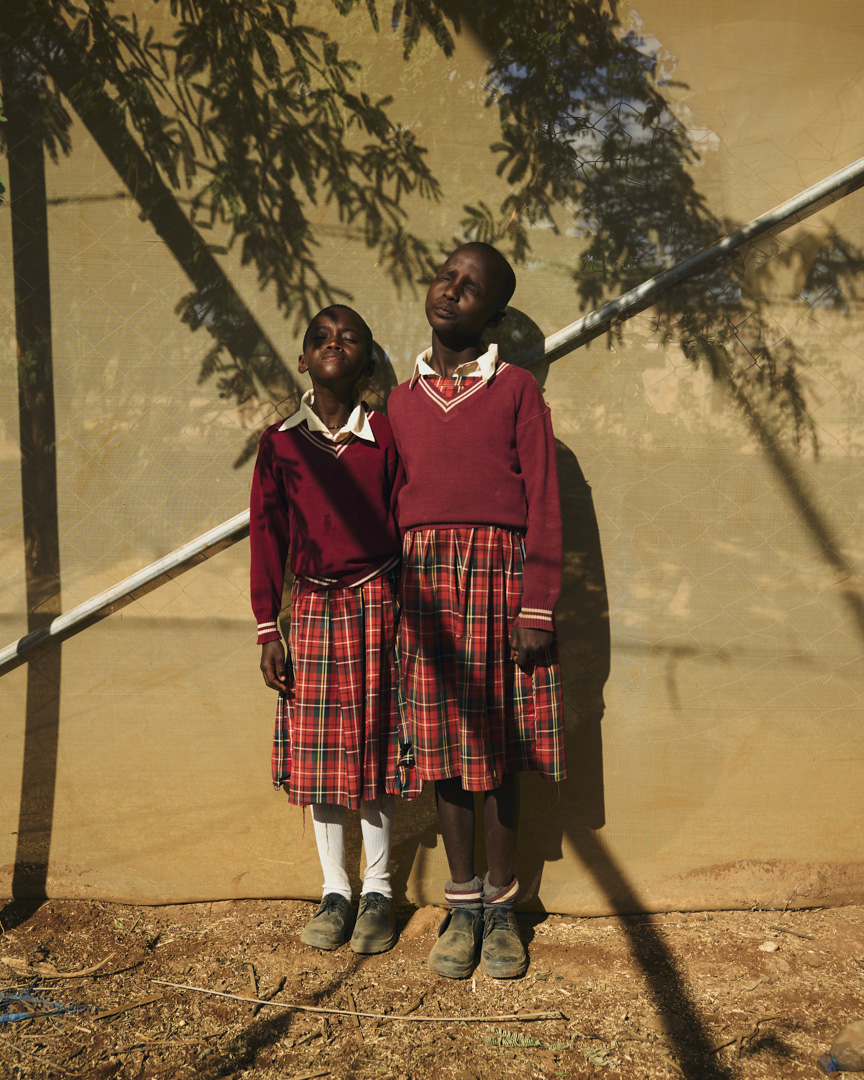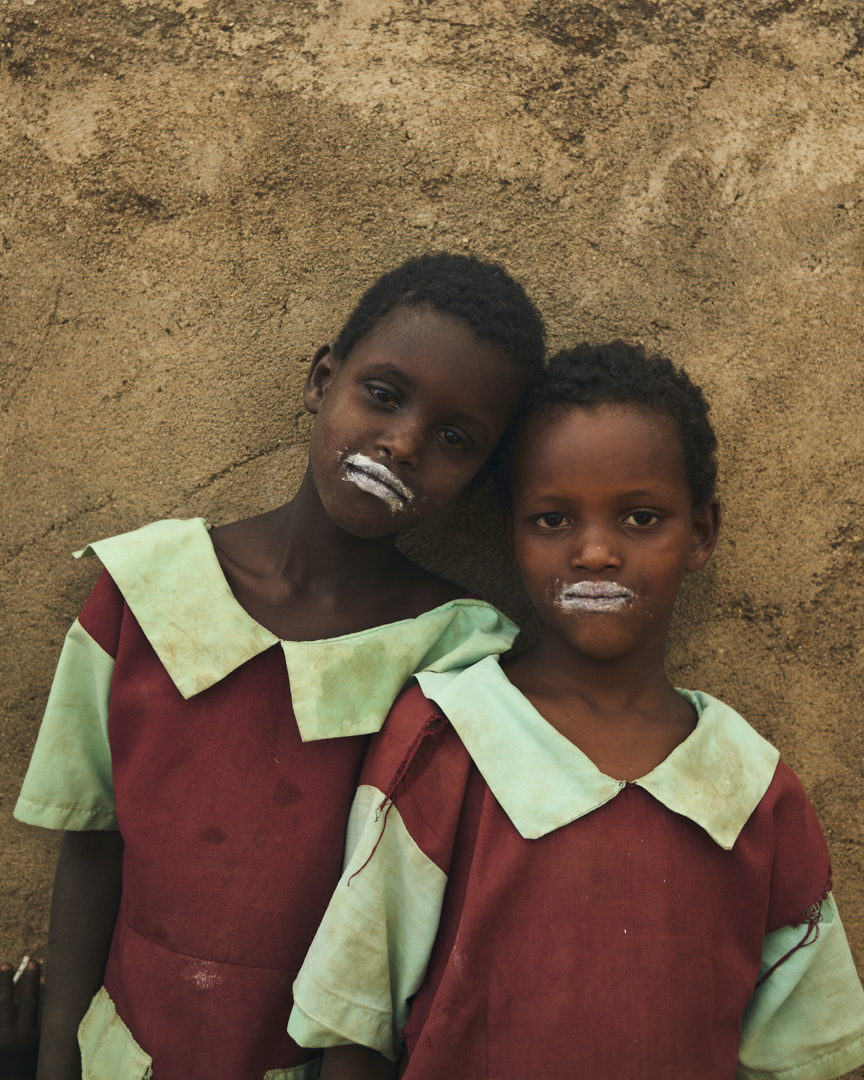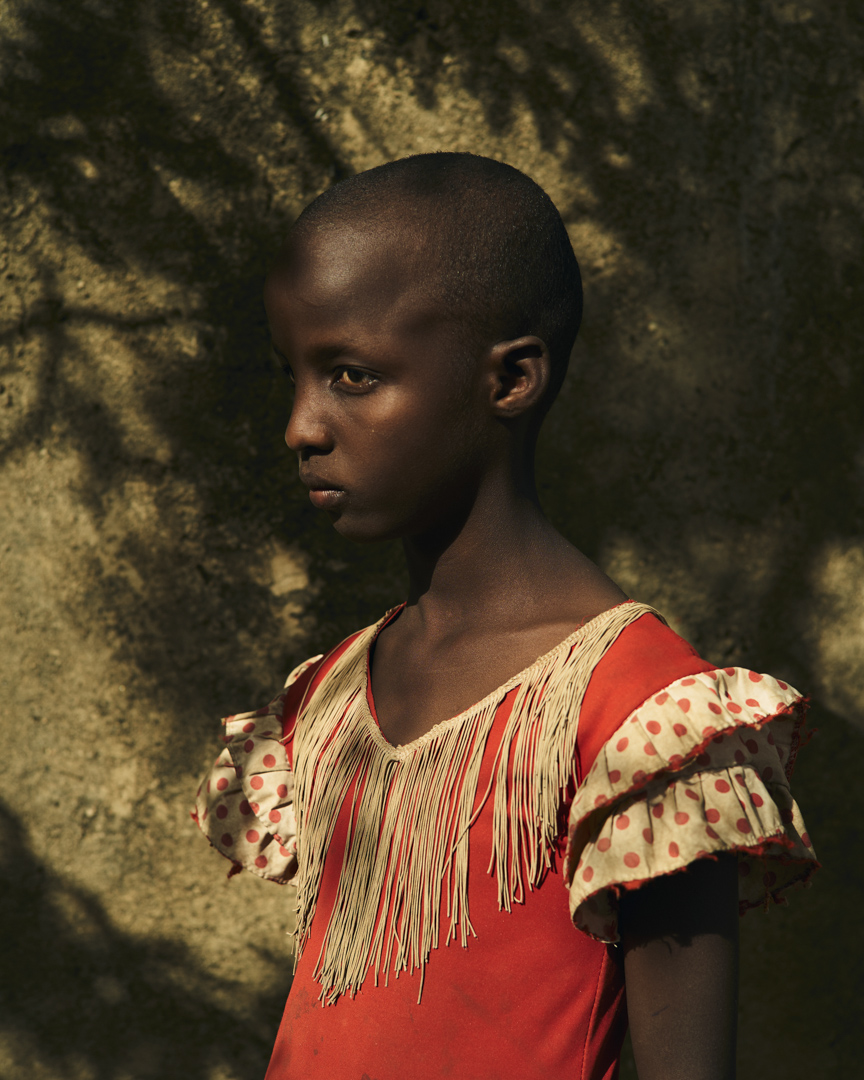Kenya, climate change, 2021
Cyril Zannettacci went to Kenya, in the Isiolo region, to witness the consequences of climate change in an already extreme environment. Locust invasions, drought, as well as floods have recently increased in the country. These problems affect peasant families in particular, threatening to worsen an already alarming situation.
Before Covid, 44.1% of the population in Isiolo was food insecure. Some families sometimes have to walk a long way to find water or take livestock to graze and drink. Problems of undernutrition are emerging, especially among children.
Cyril Zannettacci’s photographic narrative captures the everyday reality experienced by the people in the region. “The days are spent looking for water and eating. To find water, some people dig holes to find water from the groundwater, but we are talking about very small quantities of brown, rotten water. We have seen children rushing to fill their water bottles in these holes with this unfit water.
The photographer also focused on documenting the environment in which the local people live. “I photographed the interiors of the houses, kitchens in particular, because they often reveal the way you live. Kitchens in this region are generally limited to two stones on the floor, with a rusty pot and plastic cups.”
This series was produced as part of the Dust – Climate Change project, in collaboration with Action contre la Faim, to document climate change’s impact on world hunger.
Access to drinking water, for both humans and livestock, is becoming a real issue as problems of undernutrition appear, particularly among children.
Herds are taken to graze several hours away and are guarded by armed men to ensure their safety. Sometimes clashes between villages break out and looters covet the scarce available resources.
Men, women and children dig in the earth to collect water. This water is used for drinking and eating.
Umoja, which means ‘unity’ in Swahili, is an all-women village. It was founded in the 1990s by some of them who had suffered sexual violence. The shelter now houses about 40 women.
Cliquer ici pour ajouter votre propre texte
